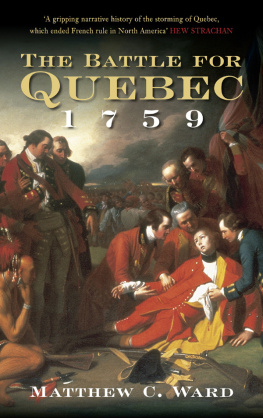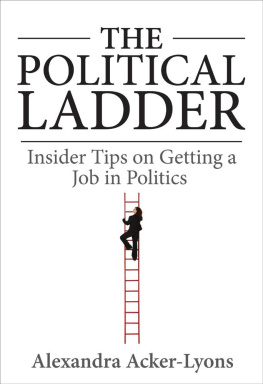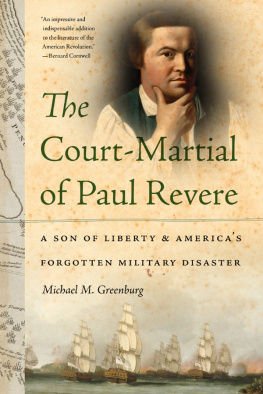Bloomsbury Studies in Military History
Series Editor Jeremy Black
Bloomsbury Studies in Military History offers up-to-date, scholarly accounts of war and military history. Unrestricted by period or geography, the series aims to provide free-standing works that are attuned to conceptual and historiographical developments in the field while being based on original scholarship.
Currently available in the Bloomsbury Studies in Military History series:
The Army in British India, Kaushik Roy
Empire and Military Revolution in Eastern Europe, Brian Davies
56th Infantry Brigade and D-Day, Andrew Holborn
Fratricide in Battle, Charles Kirke
The RAFs French Foreign Legion, G. H. Bennett
Reinventing Warfare 191418, Anthony Saunders
Forthcoming titles in the Bloomsbury Studies in Military History series:
Australasian Propaganda and the Vietnam War, Caroline Page
The D-Day Landing on Gold Beach, Andrew Holborn
Reassessing the British Way in Warfare, K. A. J. McLay
The Role of the Royal Navy in South America, 19201970, Jon Wise
The 1711 Expedition to Quebec Politics and the Limitations of British Global Strategy
Adam Lyons
For Louise and my parents
Contents
I am extremely grateful for the conversation, suggestions, help and support of the following: Colonel (Retd) Hugh Boscawen, Dr Stephen Brumwell, Professor Dean Jobb, Dr Victoria Henshaw, Dr John McAleer and Dr Keith McLay. Thanks must also go to Professor Jeremy Black and Dr Jerzy Lukowski for supporting the publication of my research; and to Michael Greenwood, Rhodri Mogford and Claire Lipscomb at Continuum. I am also forever indebted to Dr Michael Snape for his friendship and guidance. Finally, thanks to both Louise for her patience and to my mother for funding my visit to the wonderful city of Quebec in memory of my father.
All dates follow the Old Style convention, which is prevalent in the source material, unless otherwise specified. The Julian calendar was ten days behind the New Style Gregorian calendar during the seventeenth century and 11 days behind after 1700. For clarity, the year begins on 1 January and not 25 March, which was the convention at the time.
This book covers the period surrounding 1707 when the Act of Union came into force, therefore England and Britain are both used where appropriate.
The spelling in quotations has been modernized. Names of people and places have been standardized to one form as there are numerous variations in the manuscripts.
Bracketed numbers after a ships name denotes the number of guns it carried.
Map 1 Northeast America
Source: Adapted from http://d-maps.com/carte.php?lib=east_coast_of_north_america_map&num_car=1686&lang=en
Map 2 The approach to Quebec
Source: Adapted from http://d-maps.com/carte.php?lib=quebec_map&num_car=1868&lang=en
Map 3 Colonial area of operations
Source: Adapted from http://d-maps.com/carte.php?lib=north_East_usa_map&num_car=1818&lang=en
Map 4 The route to Montreal
Source: Adapted from http://d-maps.com/carte.php?lib=new_york_map&num_car=7478&lang=en
Map 5 Chart from The English Pilot (London, 1706)
The abortive expedition to capture Quebec, sent under the auspices of Secretary of State Henry St John towards the close of the War of the Spanish Succession (170114), was the first large-scale British military endeavour to combat the French in Canada. Led by General John Hill, it comprised an impressive array of units needed to conduct military operations in New France and was then the largest military force ever assembled in that part of the world. The fleet which carried them, commanded by Rear Admiral Sir Hovenden Walker, met with ruin on the approach to Quebec on the night of 23 August 1711. Several troop transports and hundreds of lives were lost off the rocky north shore of the notoriously dangerous St Lawrence River, which brought to an end this unprecedented combined operation. Upon receiving news of the disaster, the colonial force making its simultaneous landward thrust towards Montreal, under Lieutenant General Francis Nicholson, also withdrew.
The expedition could easily have succeeded given better political leadership. As this was lacking, it was doomed to fail from its very conception. The ambitious St John had enforced a culture of secrecy surrounding the expeditions organization because it was his personal project and so it needed to be hidden not only from the French, but also from the scrutiny of his political opponents. He did this by acquiring an insufficient quantity of provisions, which would imply that the fleet being assembled would be sent somewhere in Europe. This proved to be extremely detrimental to the expeditions chances of success as not only was it dispatched from England precariously late in the year for a Canadian campaign, but this plan also required the fleet to rendezvous at Boston to acquire further supplies. Logistically, this was very problematical and served to expose differences between the British and the colonials which would become even more apparent several decades later. Another reason for failure was the St Lawrence itself. It had never before been sailed upon, or charted, by the Royal Navy. The river was a dangerous enigma to sailors unfamiliar with its navigation. Considering how events unfolded and escalated into catastrophe, Walker and Hill ultimately arrived at a sensible conclusion when they decided to return to Great Britain.
The expedition was a result of the turbulent political environment towards the end of Queen Annes reign. Interminable military campaigning and high wartime taxes had served to quell public enthusiasm for both the war and the Whig government. Their misguided impeachment of the High Tory Anglican clergyman, Dr Henry Sacheverell, altered the British political landscape and ultimately brought down the Whig ministry in 1710. The duumvirate of the Captain General, John Churchill, Duke of Marlborough and the Lord High Treasurer, Sidney Godolphin, Earl of Godolphin, had dictated policy for too long. In an age that lacked freedom of speech, Sacheverell was brought to trial by Godolphin for attacking the 1688 revolution and the rise of the Whigs and their dissenting allies. Sacheverell consequently became a rallying-figure for the Tory cause, securing great public support, prompting the London mob into action. Godolphins old colleague from the days of the triumvirate delivered the death blow to the Whig ministry. After becoming disenchanted and forced to resign from office in 1708 by the partnership of Marlborough and Godolphin, Robert Harley had returned to prominence as a Tory leader. His steady efforts to gain royal influence had succeeded through his ties with the Queens favourite, and Hills sister, Abigail Masham, who had supplanted Sarah, Duchess of Marlborough. Queen Anne began appointing Tories to ministerial positions and Harley eventually became head of the new ministry in August 1710 when he was awarded the position of chancellor of the exchequer. The new political configuration was confirmed in the following month by the electorates overwhelming support.














